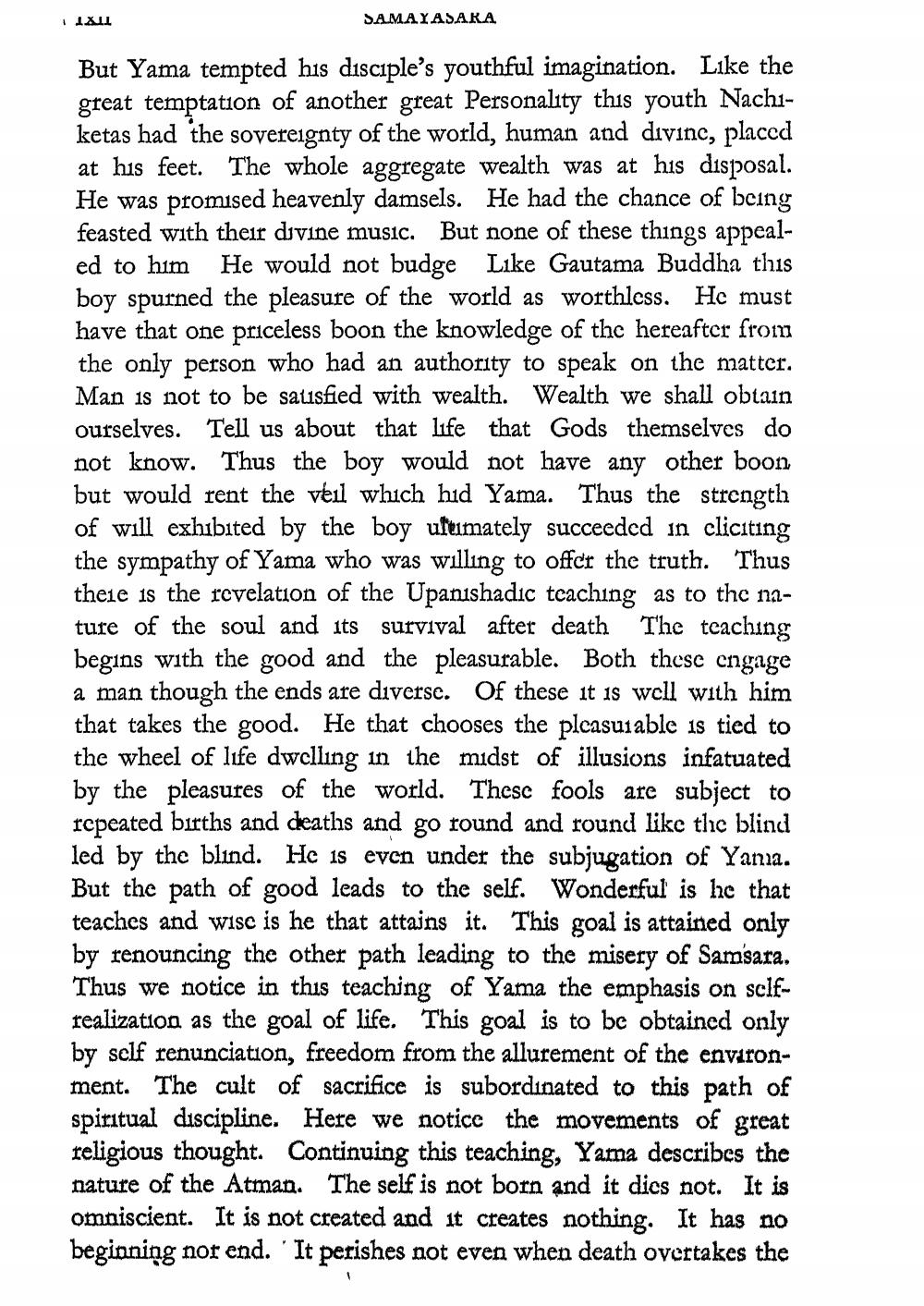________________
1 1X11
SAMAYASARA
But Yama tempted his disciple's youthful imagination. Like the great temptation of another great Personality this youth Nachiketas had the sovereignty of the world, human and divine, placed at his feet. The whole aggregate wealth was at his disposal. He was promised heavenly damsels. He had the chance of being feasted with their divine music. But none of these things appealed to him He would not budge Like Gautama Buddha this boy spurned the pleasure of the world as worthless. He must have that one priceless boon the knowledge of the hereafter from the only person who had an authority to speak on the matter. Man is not to be satisfied with wealth. Wealth we shall obtain ourselves. Tell us about that life that Gods themselves do not know. Thus the boy would not have any other boon but would rent the veil which hid Yama. Thus the strength of will exhibited by the boy ultimately succeeded in cliciting the sympathy of Yama who was willing to offer the truth. Thus there is the revelation of the Upanishadic teaching as to the nature of the soul and its survival after death The teaching begins with the good and the pleasurable. Both these engage a man though the ends are diverse. Of these it is well with him that takes the good. He that chooses the pleasurable is tied to the wheel of life dwelling in the midst of illusions infatuated by the pleasures of the world. These fools are subject to repeated births and deaths and go round and round like the blind led by the blind. He is even under the subjugation of Yama. But the path of good leads to the self. Wonderful is he that teaches and wise is he that attains it. This goal is attained only by renouncing the other path leading to the misery of Samsara. Thus we notice in this teaching of Yama the emphasis on selfrealization as the goal of life. This goal is to be obtained only by self renunciation, freedom from the allurement of the environment. The cult of sacrifice is subordinated to this path of spiritual discipline. Here we notice the movements of great religious thought. Continuing this teaching, Yama describes the nature of the Atman. The self is not born and it dies not. It is omniscient. It is not created and it creates nothing. It has no beginning nor end. It perishes not even when death overtakes the




